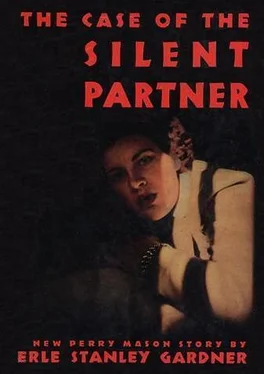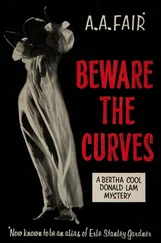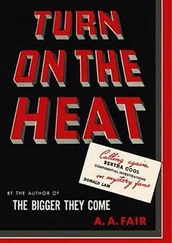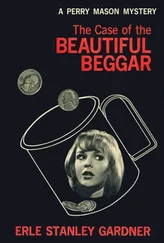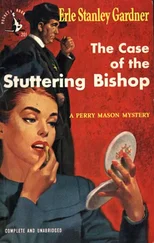Erle Gardner - Case of the Silent Partner
Здесь есть возможность читать онлайн «Erle Gardner - Case of the Silent Partner» весь текст электронной книги совершенно бесплатно (целиком полную версию без сокращений). В некоторых случаях можно слушать аудио, скачать через торрент в формате fb2 и присутствует краткое содержание. Город: New York, Год выпуска: 1940, Издательство: William Morrow, Жанр: Классический детектив, на английском языке. Описание произведения, (предисловие) а так же отзывы посетителей доступны на портале библиотеки ЛибКат.
- Название:Case of the Silent Partner
- Автор:
- Издательство:William Morrow
- Жанр:
- Год:1940
- Город:New York
- ISBN:нет данных
- Рейтинг книги:4 / 5. Голосов: 1
-
Избранное:Добавить в избранное
- Отзывы:
-
Ваша оценка:
- 80
- 1
- 2
- 3
- 4
- 5
Case of the Silent Partner: краткое содержание, описание и аннотация
Предлагаем к чтению аннотацию, описание, краткое содержание или предисловие (зависит от того, что написал сам автор книги «Case of the Silent Partner»). Если вы не нашли необходимую информацию о книге — напишите в комментариях, мы постараемся отыскать её.
Case of the Silent Partner — читать онлайн бесплатно полную книгу (весь текст) целиком
Ниже представлен текст книги, разбитый по страницам. Система сохранения места последней прочитанной страницы, позволяет с удобством читать онлайн бесплатно книгу «Case of the Silent Partner», без необходимости каждый раз заново искать на чём Вы остановились. Поставьте закладку, и сможете в любой момент перейти на страницу, на которой закончили чтение.
Интервал:
Закладка:
Mason said, “Someone got it from the orchids and put it in the candy. How did you send the orchids?”
“By Western Union messenger.”
“Were they wrapped?”
“Yes, they were in a box.”
“About the size of a candy box?”
“Yes.”
“Where did you send it?”
“To the Golden Horn.”
“And it was addressed to her?”
“Yes.”
“How?”
“What do you mean?”
“Pencil, pen and ink, typewriting, or...”
“Oh, pen and ink. I wrote her name on the outside of the box — that is, on the wrapper, you know.”
“The box was about the size of a three-pound candy box?”
“I guess it was.”
“Someone,” Mason said, “could very readily have taken that box at the Golden Horn, promised to take it to Esther Dilmeyer, then taken out the orchids and put in the drugged candy.”
“I suppose so.”
Mason said, “That could have been done all the more readily in case the person who received it was in a position of some responsibility.”
Mildreth Faulkner studied the tips of her gloved fingers. She said, “I remember telling the boy he didn’t need to make a personal delivery, but to be certain they would reach her... I can’t imagine...”
“He probably delivered ’em to the doorman,” Mason said. “The doorman’s rather officious.”
“That may have happened.”
“How much is that stock of yours worth?” Mason asked.
“A great deal — more than the real intrinsic value. You know how it is. I have three shops. They’re all making money. I’m my own boss. I control the business policies. I’m making a good living out of the business, and the business is building up all the time. That’s worth a great deal more to me than the book value of the stock. In other words, every thousand dollars’ income that I’m making out of the place on a setup like that, I figure is the equivalent of a twenty-five thousand dollar capital investment. But, of course, I couldn’t sell out on that basis.”
Mason said, “I may have to pay out a little money. How high can I go?”
She said, without hesitation, “Go to ten thousand dollars if you have to.”
“But not more than that?”
“N-n-no. Well, not without consulting me anyway.”
Mason said, “I don’t think I’ll have to pay out a cent. If I do, it won’t be very much, but — well, I’ll do the best I can. Della, call up the Golden Horn. See if Magard will give us the address of Lynk’s hide-out.”
Mildreth Faulkner opened her purse, took out a folded slip of paper, hesitated, started to put it back, realized the lawyer’s eyes were on her, and said, “I have it here — the address of the Lilac Canyon cabin.”
“Where’d you get it?”
“From Esther Dilmeyer — but don’t give her away.”
“All right, I won’t. Della, you take a taxi home and get some sleep. I’ll call you in an hour or an hour and a half, Miss Faulkner.”
Mason walked over to the hat closet, put on his hat and coat, grinned cheerfully at his worried client. “Now, take it easy,” he said, “and don’t worry. Things are going to be all right. Those men are running a gambling place in connection with the Golden Horn, and there are half a dozen weak points in their armor. One of them is Mr. Magard, Mr. Lynk’s partner. I was at the Golden Horn with Lieutenant Tragg of the Homicide Squad. The doorman started getting officious, and Tragg put him in his place. By the time Magard got back, he knew that the police had been there. He’ll fall all over himself trying to square things up.”
Mildreth Faulkner said, getting to her feet, “I feel better now than I have at any time in the last few hours. This thing hit me an awful blow.”
“Well, we’ll do the best we can,” Mason promised.
“You’re — you’re so thoroughly capable,” she said with a little laugh. “I feel that everything is all settled right now. You’re going out to the Golden Horn personally?”
“No, I’m going to Lilac Canyon, if Lynk hasn’t returned to the Golden Horn.”
“Well, no matter what happens, win, lose, or a draw, you’ll call me just as soon as... well, call me by three o’clock anyway. I’ll be waiting.”
Mason said, reassuringly, “Sure, I’ll call you. Close up the shop, Della, and put out the lights. I’m on my way.”
Chapter 5
The road up Lilac Canyon wound like a sinuous snake, twisting and turning. Side roads meandered off the main highway, following the contours of the steep hillsides to secluded little cabins, places almost within a stone’s throw of the city, yet still distinctly rural and rustic.
At one time, before the city had entered upon its phenomenal spurt of growth, Lilac Canyon had been the hinterland. It was devoted to week-end cabins, little hideouts, places where city dwellers could spend quiet Saturday afternoons and Sundays.
Then the city had expanded. Lilac Canyon was still too precipitous, too brushy, and too rural to lend itself to real estate subdivision, but the lots were pounced upon by those who wished relatively cheap hillside property within commuting distance of the metropolitan district.
Mason had some trouble as he threaded his way along the winding pavement of the main road, locating the names of the roads which turned off. Eventually, however, he found Acorn Drive and turned off, following the road along the contours until he rounded the shoulder of a mountain from which he could look down on the valley, and see the long lighted lines which marked the location of boulevards; in the distance the bright blotches of the suburban cities.
Mason slowed down, looking for house numbers, but the houses were back from the roadway, crowded up or down on the hillside, screened wherever possible by the scrub oak which was native to the hillside.
Abruptly Mason saw the red light of a car parked ahead. Just beyond was another car, and beyond that still a third. Up from the road to the right, was a small cabin with lights ablaze. A group of men gathered on a porch which stretched from the front around to the side of the house. They were smoking, and the little pin points of red light made by the tips of their cigarettes glowed into alternate spurts of brilliance like stationary fireflies.
The front door of the house was open. Across this illuminated oblong, men moved back and forth, men who kept their hats on. It might have been a Hollywood party, but there was no hilarity, no sounds of merriment emanating from the lighted building.
Mason swung his car so that the headlights fell on the license plate of one of the parked cars. He saw that it held an “E” within a diamond, the sign of a police car.
Abruptly, Mason changed his course and drove on past the group of parked automobiles.
Three hundred yards beyond, the road ended in a paved circle which gave Mason barely enough room to turn around.
Headed back toward town, he ran his car in close to the curb where there was a straight stretch free of parked automobiles. He switched out the lights, turned off the ignition, and climbed the two flights of stairs which led from the street, up the steep declivity to the porch.
One of the men seated on the porch recognized him, came forward, took his arm, pushed him slightly to one side. “How about it, Mr. Mason? Got a story for us?”
“On what?” Mason asked.
“On the murder. How do you come in on it? Are you retained, and, if so, by whom? What’s it all about?”
Mason said, “I think you are one up on me.”
“On what?”
“On the murder.”
“You didn’t know about it?”
“No.”
“Then what are you doing here?”
“I wanted to get in touch with Lieutenant Tragg,” Mason said. “I tried to reach him at headquarters. They told me I’d find him here. They didn’t say what was wrong. You say a man was killed?”
Читать дальшеИнтервал:
Закладка:
Похожие книги на «Case of the Silent Partner»
Представляем Вашему вниманию похожие книги на «Case of the Silent Partner» списком для выбора. Мы отобрали схожую по названию и смыслу литературу в надежде предоставить читателям больше вариантов отыскать новые, интересные, ещё непрочитанные произведения.
Обсуждение, отзывы о книге «Case of the Silent Partner» и просто собственные мнения читателей. Оставьте ваши комментарии, напишите, что Вы думаете о произведении, его смысле или главных героях. Укажите что конкретно понравилось, а что нет, и почему Вы так считаете.
